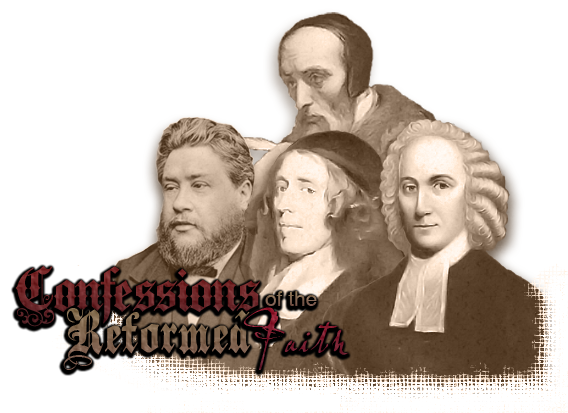 For those who would like to examine the differences between the 1646 Westminster Confession of Faith and the 1689 London Baptist Confession of Faith, a very helpful tabular comparison can be found at this link.
For those who would like to examine the differences between the 1646 Westminster Confession of Faith and the 1689 London Baptist Confession of Faith, a very helpful tabular comparison can be found at this link.
Monthly Archives: December 2011
A Few Thoughts on Hyper Calvinism
“Remember… while some Arminians are Armenians and some Armenians are Arminians, Armenians and Arminians are two very different groups. Second, while it’s true that some Calvinists can be a bit hyper, that doesn’t make them Hyper-Calvinists.” – Justin Taylor

Amongst the archives at www.aomin.org here I found this, written by my friend Dr. James White; a response to a man I shall call Brian (not his real name). It is rather lengthy but I think you will find it worthwhile. To allow for easy reading I will make James White’s words appear in bold type:
James writes:
The following exchange took place around the year 2000. If I am recalling correctly, an unsolicited e-mail arrived with a large “cc” list of people. As you will see, my initial response was very brief, because I learned long ago that these kinds of impromptu e-mail lists will suck the life right out of you if you let them. False teachers have, seemingly, unlimited time resources. In any case, when the reply came, I did invest a few moments to type out a few thoughts I have had on the subject of the demands of hyper-Calvinists. I hope they are useful to others as well.
Continue reading
Word and Sacrament in Worship
 Dr. Kim Riddlebarger is senior pastor of Christ Reformed Church (URCNA) in Anaheim, California, and is co-host of The White Horse Inn. He is also author of A Case for Amillennialism. He writes:
Dr. Kim Riddlebarger is senior pastor of Christ Reformed Church (URCNA) in Anaheim, California, and is co-host of The White Horse Inn. He is also author of A Case for Amillennialism. He writes:
In those fundamentalist churches in which I was raised, most Sunday mornings the minister preached from a well-worn Bible, told a few stories to illustrate his point and then reminded us that Jesus is our only hope of heaven. But every service ended the same way, with an altar call. Those who heard the message and were convicted of their sins were invited to come forward and speak with the minister, who would ask those brave enough to repeat the sinner’s prayer and thereby be assured of God’s favor toward them. Sometimes church members would go forward, which was always a shock, because you wondered what they did the week before that required such a public act of contrition. On a rare, but joyful, occasion, someone for whom the church had been praying, was ready to accept Jesus as their “personal Savior.” They would get up out of their pew, walk the aisle and be received with great joy, especially when the person was known to be an unbeliever or a “backslider.”
On the one hand, there was something truly wonderful about this. Heaven rejoices when a sinner repents (Luke 15:7). It was wonderful to be assured of Christ’s favor and to know that even in those times when we struggle with some particular sin, or when doubt chips away at our faith, we could be reassured of God’s favor in some tangible way. On the other hand, there was something quite troubling about this practice. There was always a qualification. The minister would tell us that if we were truly sincere — “if you really meant it”— then God’s promises about the forgiveness of sins and the hope of heaven truly applied to us. But I wasn’t sure I really “meant it.” No doubt others felt the same way.
Continue reading
